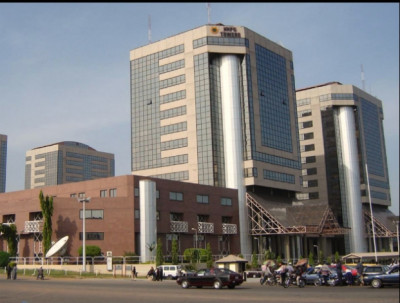While the age-old saying and philosophy of virtue being its own reward (or seeing doing good as its own reward) remains a strong motivating factor in doing good persistently, it helps when virtue gets recognition from time to time. Even though anyone or organisation committed to doing good will keep doing so with or without recognition, recognitions for virtue tend to act like a shot in the arm for such people or organisations, spurring them to commit even more to doing good.
That is what the recent award of “Retail Banking CEO of the Year Nigeria” to Dr Adesola Adeduntan, CEO of First Bank of Nigeria Limited, is to both him and the bank he leads. It is a shot in the arm of this foremost CEO of Nigeria’s most enduring financial institution that is also the pioneer in retail banking development in Nigeria, the premier bank in West Africa and the leading financial inclusion services provider in Nigeria for over 127 years, to keep steering the bank in the right direction, energising and expanding retail opportunities for all Nigerians in the process. It is a well-deserved recognition for a man and the institution he leads that would rather keep off the spotlight and focus exclusively on attending to Nigerians’ banking needs as best as they can – which is what has kept them going for 127 years and counting.
This critical role is one FirstBank is better suited to lead than any other lender given the robust retail banking framework that the bank has in place, that is riding on its innovative technology-driven operations, over 750 branches across the continents and 100,000 Firstmonie Agent banking network spread across 772 local government areas in Nigeria. It is little wonder that FirstBank, which is intricately woven into the fabric of the Nigerian society, has been an essential player in the retail space, empowering Nigerians of all walks of life by providing them bespoke and innovative financial products and services that address their multidimensional needs. The bank has been at the forefront of bridging the financial exclusion gap and enabling customers and the general public to carry out both individual and corporate financial activities which contribute to the growth and development of the national economy.
The award by Global Banking and Finance Magazine, according to Dr Adeduntan, “speak[s] to the investments we [as FirstBank] have made over the past years in…enhancing financial inclusion….” It is a loud testament to the incredible strides FirstBank has made and continues to make in the retail space under the able and dynamic leadership of the management team led by Dr Adeduntan.
The strides are in turn underpinned by the bank’s resolute commitment to putting the customer and other stakeholders at the heart of its business. Dr Adeduntan reiterates this view when he wasted no time in dedicating the award to all the bank’s “customers, as the trust they reposed in us being their bank of first choice in meeting their business and financial needs has been instrumental to the success we have achieved in our existence of over 127 years.” “We remain committed,” he continued, “to putting you, our customers, first as we contribute to the growth and development of our host communities.”
Organised to identify the banks across the world that have excelled across a number of areas, including corporate governance, sustainability and innovation, and have played a key role in the industry’s growth, the Global Banking and Finance Awards reflect the innovation, achievement, strategy, progressive and inspirational changes taking place within the global financial community. The awards were created to accord recognition to companies of all sizes which are prominent in their areas of expertise and excellence within the financial world. For Dr Adeduntan and FirstBank, the award is further proof of FirstBank’s enduring commitment to providing excellent retail banking services to all its customers as reflected in the bank’s strategic vision, diverse and inclusive workforce and performance-oriented organisational structure.

 News6 years ago
News6 years ago
 Featured6 years ago
Featured6 years ago
 Boss Picks6 years ago
Boss Picks6 years ago
 Headline6 years ago
Headline6 years ago
 Headline6 years ago
Headline6 years ago
 Headline5 years ago
Headline5 years ago
 Headline6 years ago
Headline6 years ago
 Headline6 years ago
Headline6 years ago













